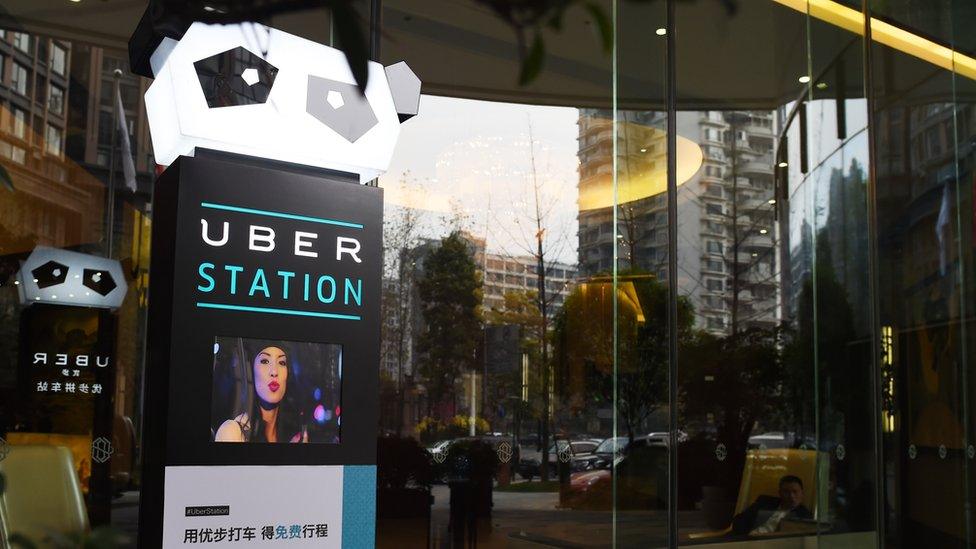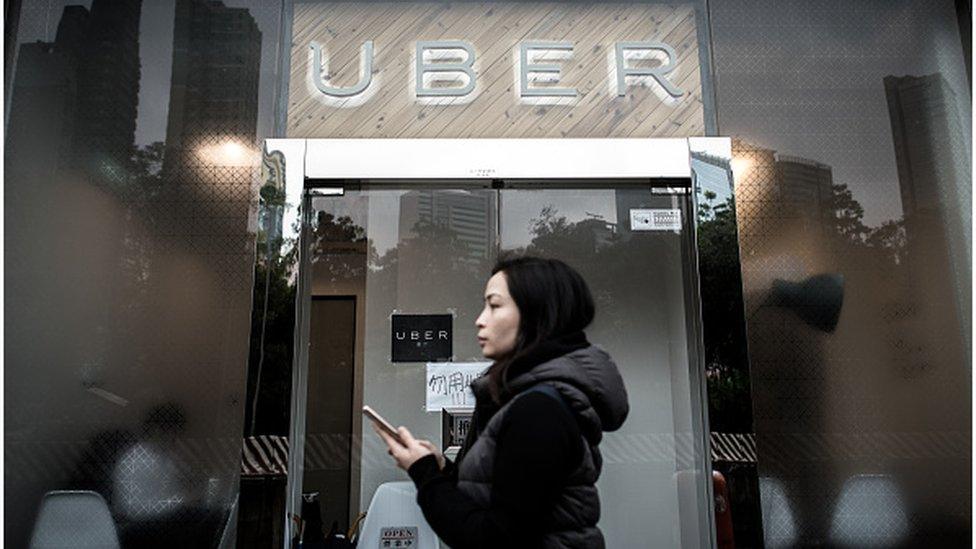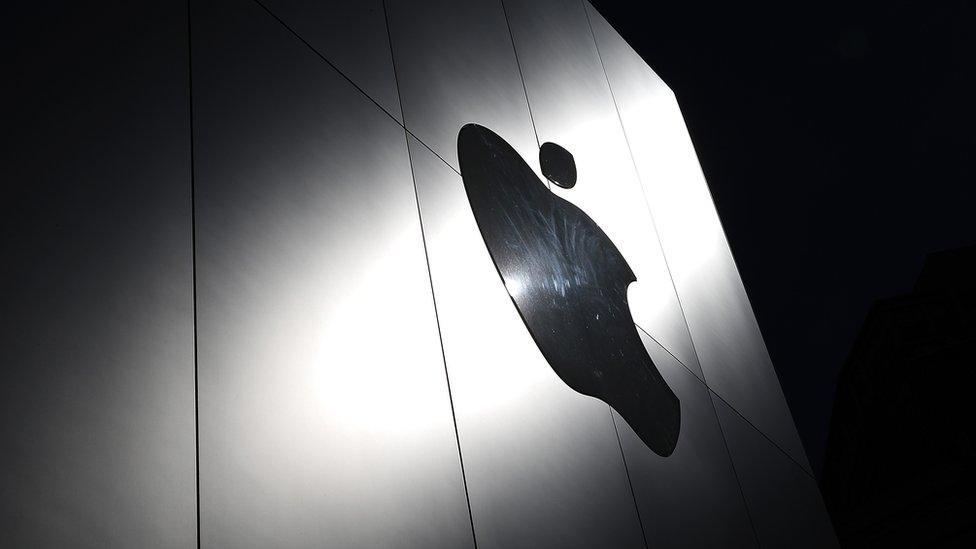Uber investor: China is tough to crack for sharing economy
- Published

China is a tough code to crack for the sharing economy. So says one of Uber's biggest investors and strategic advisers, Bradley Tusk, the chief executive of Tusk Ventures.
Speaking to me over the phone from New York, Mr Tusk went on to say that while "Uber got further in China than any US tech company has", firms that have the sharing economy as their main bread and butter may struggle to compete in China.
"Obviously the culture of China and the US are very different. The regulatory systems are very different. If there was a sharing economy company that is totally dependent on regulations, then we would have to see if it fits in to the Chinese system."
Mr Tusk insists though that Uber got the best out of a bad situation. The American ride-hailing app was losing a billion dollars a year in China, and this new deal sees Uber owning a 20% stake in the merged company.
"Uber invested $2bn in China, and ended up with a $7bn stake in Didi," says Mr Tusk. "That's not a bad deal if you look at it like that."
Beating the system
Mr Tusk is used to a tough fight. Known to some as "Silicon Valley's favourite fixer", external he's made it his job to figure out the regulatory hurdles for start-ups like Uber, and help them - in the words of Mashable "beat the system", external.
But China proved too tough a code to crack, a market where Mr Tusk's credentials and connections didn't matter - and neither did chief executive Travis Kalanick's ambitions.
Uber China - why is it selling up to its biggest rival?
So does this mean that US internet firms are doomed in China? As one industry source said to me, China's internet space is littered with the corpses of American tech firms. Uber arguably took the best possible route out of this, and it's thought that investors were keen for the company to stop spending so much on a battle it wasn't going to win.
Didi Chuxing is backed by two of the most powerful internet giants in the world - China's Alibaba and Tencent. Together they are worth close to $400bn. As I said in my previous blog Didi was helped by its big backers in its fight against Uber.
In Mr Kalanick's blog, external to his staff announcing the deal between Uber and Didi he says: "I have no doubt that Uber China and Didi Chuxing will be stronger together. That's why I'm so excited about our future… in China - a country which has been incredibly open to innovation."
That's certainly true, but one wonders whether a more appropriate phrase would have been "in China - a country which has been incredibly open to innovation - on its own terms."
- Published1 August 2016
- Published1 August 2016

- Published13 May 2016
